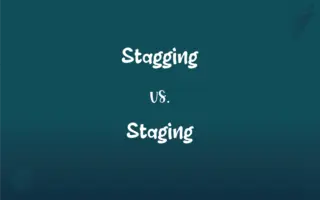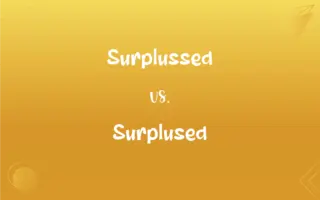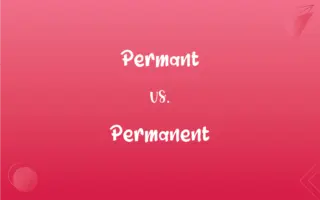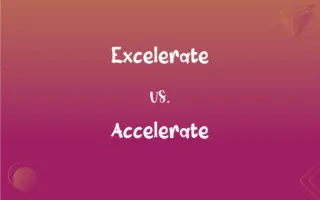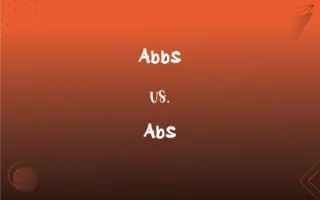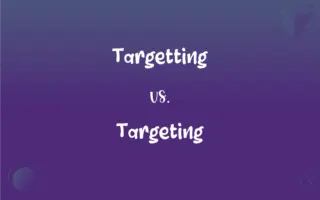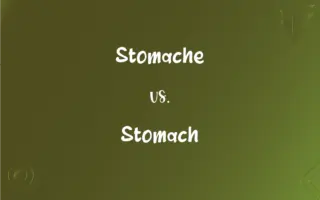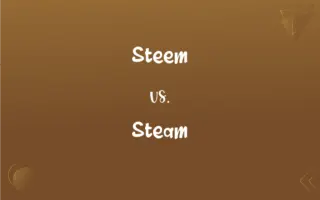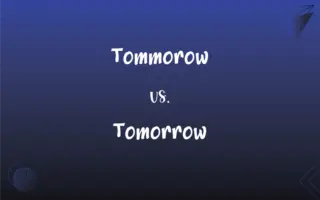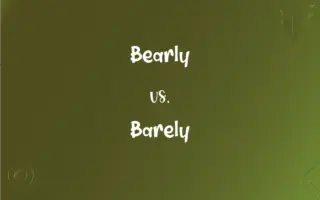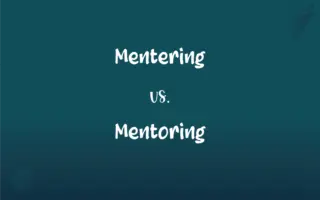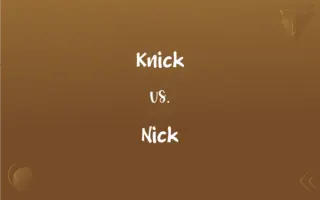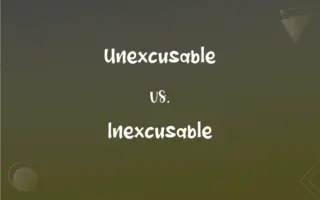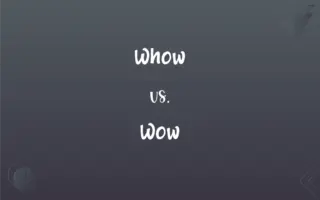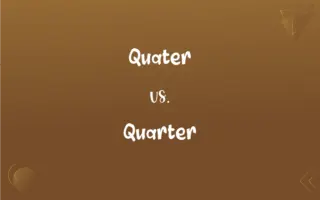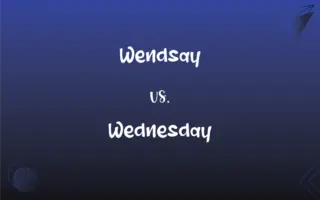Curiculum vs. Curriculum: Mastering the Correct Spelling
Edited by Aimie Carlson || By Janet White || Updated on March 7, 2024
"Curiculum" is an incorrect spelling; the correct spelling is "curriculum" denoting an educational course outline.

Which is correct: Curiculum or Curriculum
How to spell Curriculum?

Curiculum is Incorrect

Curriculum is Correct
ADVERTISEMENT
Key Differences
"I" stands alone, as in "individual" classes within the curriculum.
Think "curriculum vitae," where 'curriculum' also has two 'r's.
"U" appears three times, reflecting the three units or parts of a course.
It has one 'c' for 'course' it outlines.
"Curriculum" has two 'r's like "course" - think of a course outline.
ADVERTISEMENT
Correct usage of Curriculum
Curriculum is where we post our school subjects.
Every student received a copy of the curiculum on the first day.
Every student received a copy of the curriculum on the first day.
She has experience designing curiculum for high schools.
She has experience designing curriculum for high schools.
Our teacher explained the curiculum in detail.
Our teacher explained the curriculum in detail.
The school introduced a new curiculum this year.
The school introduced a new curriculum this year.
Curriculum Definitions
A prescribed series of instructional materials.
The updated curriculum emphasizes digital literacy.
A set of courses offered by an educational institution.
The new science curriculum includes more practical experiments.
The subjects comprising a course of study in a school or college.
She's excited about the diverse curriculum at her new school.
The content taught in a specific course or program.
The curriculum for the semester covers both theory and application.
An integrated course of academic studies.
He found the curriculum challenging but rewarding.
All the courses of study offered by an educational institution.
A group of related courses, often in a special field of study
The engineering curriculum.
The set of courses, coursework, and their content, offered at a school or university.
(obsolete) A racecourse; a place for running.
A race course; a place for running.
A course; particularly, a specified fixed course of study, as in a university.
An integrated course of academic studies;
He was admitted to a new program at the university
Curriculum Sentences
Our curriculum includes a wide range of extracurricular activities.
The new curriculum focuses more on practical skills.
The science curriculum introduces basic concepts in the third grade.
Physical education is included in the weekly curriculum.
The curriculum is updated every five years to stay current.
Teachers meet regularly to discuss curriculum improvements.
The curriculum for history includes local, national, and world history.
Math curriculum includes topics like algebra and geometry in later grades.
The curriculum covers subjects like math, science, and English.
Each grade has a different curriculum to match students' development.
Art is an important part of our school's curriculum.
Students are assessed on their understanding of the curriculum at the end of the term.
The curriculum is aligned with national educational standards.
Language arts curriculum is designed to improve reading and writing skills.
Music and drama are also part of the elective curriculum.
Environmental studies have been added to the curriculum to raise awareness.
The curriculum encourages students to work on projects in groups.
Parents can review the curriculum through the school's website.
Special education curriculum is tailored to meet individual needs.
The school's curriculum promotes critical thinking and problem-solving.
Curriculum Idioms & Phrases
Curriculum vitae
A detailed written account of one's education, qualifications, and previous employment, typically required for job applications.
She submitted her curriculum vitae along with her application for the teaching position.
Hidden curriculum
The unwritten, unofficial, and often unintended lessons, values, and perspectives that students learn in school.
Besides the official curriculum, students learn respect and teamwork as part of the hidden curriculum.
Curriculum integration
Combining subjects or thematic areas to create a more cohesive learning experience.
Curriculum integration allows students to see how different subjects connect in real-world contexts.
Standard curriculum
The set of courses and content offered by a school or educational system that adheres to established standards.
The standard curriculum is designed to meet the requirements of the state's education department.
Core curriculum
A central set of courses that must be taken and passed by all students.
The core curriculum includes subjects like math, science, and English, ensuring a well-rounded education.
Curriculum development
The process of designing or updating a course of study.
Curriculum development is ongoing to integrate new technology and methodologies.
Curriculum mapping
The process of making a detailed plan for what students need to learn and when.
Curriculum mapping helps teachers ensure all necessary topics are covered throughout the academic year.
Enriched curriculum
A curriculum enhanced with opportunities for deeper exploration and learning.
The enriched curriculum includes additional projects and activities for advanced learners.
Curriculum alignment
The process of adjusting the curriculum to ensure it matches with standards or testing requirements.
Curriculum alignment is crucial for schools to achieve high performance on standardized tests.
Curriculum guide
A document or set of documents that outlines the content of courses and grade-level expectations.
Teachers use the curriculum guide to plan their lessons and ensure they cover all required material.
Adapted curriculum
A modified version of the standard curriculum to meet the needs of students with special educational needs.
The adapted curriculum ensures all students can achieve success regardless of their learning challenges.
Curriculum differentiation
Modifying the curriculum to cater to the learning styles and abilities of all students.
Curriculum differentiation can involve providing more challenging tasks for advanced students while supporting those who need more help.
Flexible curriculum
A curriculum designed to allow adjustments based on student needs and interests.
A flexible curriculum can accommodate students who advance quickly as well as those who need more time.
Curriculum assessment
Evaluating the effectiveness and quality of the curriculum.
Curriculum assessment helps schools identify areas for improvement and success.
Project-based curriculum
A curriculum centered around completing projects as a primary method of learning.
In a project-based curriculum, students might create a business plan or design a science experiment.
Experiential curriculum
A curriculum that emphasizes learning through experience, such as internships, field trips, and hands-on projects.
The experiential curriculum aims to connect classroom learning with real-world applications.
Digital curriculum
A curriculum that incorporates digital tools and learning resources.
The digital curriculum includes online textbooks and interactive learning modules.
Vocational curriculum
A course of study that prepares students for jobs in specific trades.
The vocational curriculum includes practical training in areas like carpentry and automotive repair.
Interdisciplinary curriculum
A curriculum that combines elements from two or more subjects to teach a single class or project.
An interdisciplinary curriculum might combine history and English to study the literature and history of a specific period.
Curriculum compacting
The process of adjusting the curriculum for students who demonstrate mastery of the subject matter, allowing them to move on to more advanced material.
Curriculum compacting is often used in gifted education programs.
Curriculum framework
An outline that specifies the goals and standards of a curriculum, including the content and skills students should acquire.
The curriculum framework serves as a guide for educators in planning their instruction.
FAQs
Which vowel is used before curriculum?
The vowel "a" is often used before "curriculum", as in "a curriculum".
Why is it called curriculum?
It is called "curriculum" from the Latin 'curriculum', meaning 'a race course' or 'career', metaphorically representing the course of one's education.
What is the pronunciation of curriculum?
Curriculum is pronounced as /kəˈrɪkjʊləm/.
Which conjunction is used with curriculum?
"And" is often used when mentioning various aspects of a curriculum.
What is the plural form of curriculum?
The plural form is "curricula" or less commonly "curriculums".
Which article is used with curriculum?
The indefinite article "a" or the definite article "the" can be used, depending on context.
Is curriculum a negative or positive word?
Curriculum is neutral; it is neither inherently negative nor positive.
What is the verb form of curriculum?
Curriculum does not have a direct verb form, but related actions are "to educate", "to teach", or "to learn".
What is the root word of curriculum?
The root word is the Latin 'currere', meaning 'to run', from which 'curriculum' is derived, implying a course to be run or followed.
Is curriculum a noun or adjective?
Curriculum is a noun.
Which preposition is used with curriculum?
"In" is commonly used, as in "courses in the curriculum".
What is the singular form of curriculum?
The singular form is "curriculum".
Is curriculum an adverb?
No, curriculum is not an adverb.
Is curriculum a vowel or consonant?
"Curriculum" starts with a consonant 'c'.
Is curriculum a collective noun?
It can be considered a collective noun when it refers to a collection of courses.
What part of speech is curriculum?
Curriculum is a noun.
What is another term for curriculum?
Another term for curriculum is "syllabus" or "course of study".
What is the second form of curriculum?
Being a noun, "curriculum" does not have a second form like verbs do.
Is curriculum an abstract noun?
Yes, curriculum is an abstract noun as it represents an idea or concept rather than a physical object.
Is the curriculum term a metaphor?
Its origin is metaphorical, relating to a race course, but it is used literally in educational contexts.
What is a stressed syllable in curriculum?
The stressed syllable in "curriculum" is the first one: CUR-ric-u-lum.
What is the first form of curriculum?
"Curriculum" itself is the base form; it does not change as it is a noun.
Is the word curriculum is imperative?
No, "curriculum" is not an imperative; it is a noun.
How many syllables are in curriculum?
There are four syllables in "curriculum".
What is the third form of curriculum?
As a noun, "curriculum" does not have a third form.
Is curriculum a countable noun?
Yes, curriculum is a countable noun; you can have one or more curricula or curriculums.
How do we divide curriculum into syllables?
Curriculum is divided into syllables as cur-ric-u-lum.
What is the opposite of curriculum?
There isn't a direct opposite, but "extracurricular" refers to activities outside the standard curriculum.
How is curriculum used in a sentence?
"The school introduced a new curriculum focused on interdisciplinary learning."
Which determiner is used with curriculum?
Determiners like "the", "a", "this", "each" can be used with "curriculum" depending on context.
About Author
Written by
Janet WhiteJanet White has been an esteemed writer and blogger for Difference Wiki. Holding a Master's degree in Science and Medical Journalism from the prestigious Boston University, she has consistently demonstrated her expertise and passion for her field. When she's not immersed in her work, Janet relishes her time exercising, delving into a good book, and cherishing moments with friends and family.
Edited by
Aimie CarlsonAimie Carlson, holding a master's degree in English literature, is a fervent English language enthusiast. She lends her writing talents to Difference Wiki, a prominent website that specializes in comparisons, offering readers insightful analyses that both captivate and inform.


